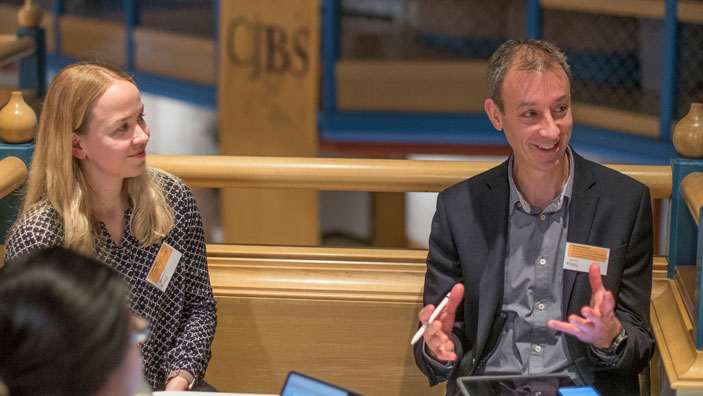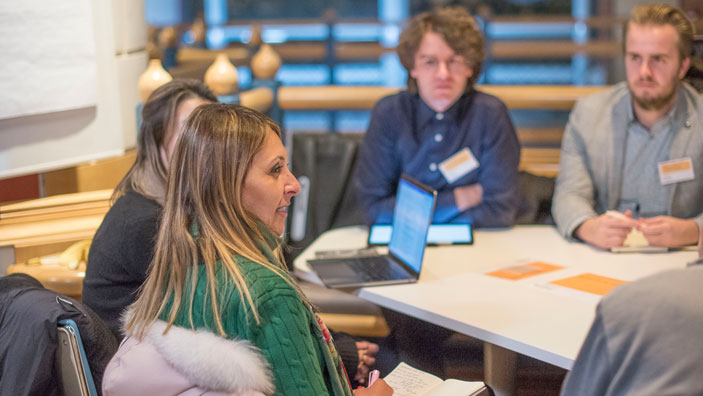Getting involved in supervising and mentoring
Are you passionate about nurturing the next generation of innovators and entrepreneurs?
We’ve had an incredible response and are currently at full capacity for supervisor signups. Thank you to everyone who’s shown interest.
Applications are now closed – but please check back later in case additional opportunities become available. We’re always excited to welcome dedicated individuals to the EnterpriseTECH community.

About the EnterpriseTECH experience for supervisors
EnterpriseTECH is a vibrant, team-based programme that runs twice a year, forming around 10 teams per cohort. That’s approximately 120 students annually seeking guidance! As a supervisor, you’ll lead one of these dynamic teams, providing three structured supervisions based on our tailored teaching frameworks. Your expertise will help shape the entrepreneurial journeys of our students, steering them through the exciting world of tech evaluation and innovation.
Why getting involved is inspiring
Joining our supervisor pool is more than just a role; it’s an opportunity for personal and professional growth. You’ll immerse yourself in a diverse ecosystem of students, researchers, and inventors, expanding your network and sparking new or renewed connections.
Witness firsthand the birth of innovative projects and fresh business ideations, and gain valuable insights into emerging technologies. Being a part of our community is not just rewarding —it’s a chance to be at the forefront of entrepreneurial education, making a tangible impact on the future of technology and business.
What background is required?
We look for people with a wide range of teaching skills across both traditional and innovative fields. Whether you’re an academic or a professional within the entrepreneurial world..
You’re a perfect match if you have a PhD or equivalent expertise in science or technology, an MBA, or have hands-on experience in mentoring university students, guiding startups, launching your own venture, or advising on early-stage business strategies.
We’re keen on diversifying our team and encourage more women to join us in both capacities.

The EnterpriseTECH supervisor role
EnterpriseTECH, a 10-week programme, kicks off with a 40-hour lecture week, setting the stage for hands-on learning under the guidance of a supervisor.
As a supervisor, you are instrumental in bridging theory with practical application through the ‘Cambridge supervision model’. This model allows you to lead your student team in tackling a real-world project, culminating in a comprehensive commercial feasibility report, a 3,000-word document, a video infomercial and a pitch presentation.
You’ll conduct 3 structured supervisions outside regular working hours, typically hosted at Cambridge Judge Business School. These sessions are dedicated to exploring the technology of the assigned project, crafting a business proposition, and honing the team’s research and analysis. Your role extends to providing insightful feedback on assignments, participating in essential programme milestones, and offering a detailed account of your team’s journey and achievements.






